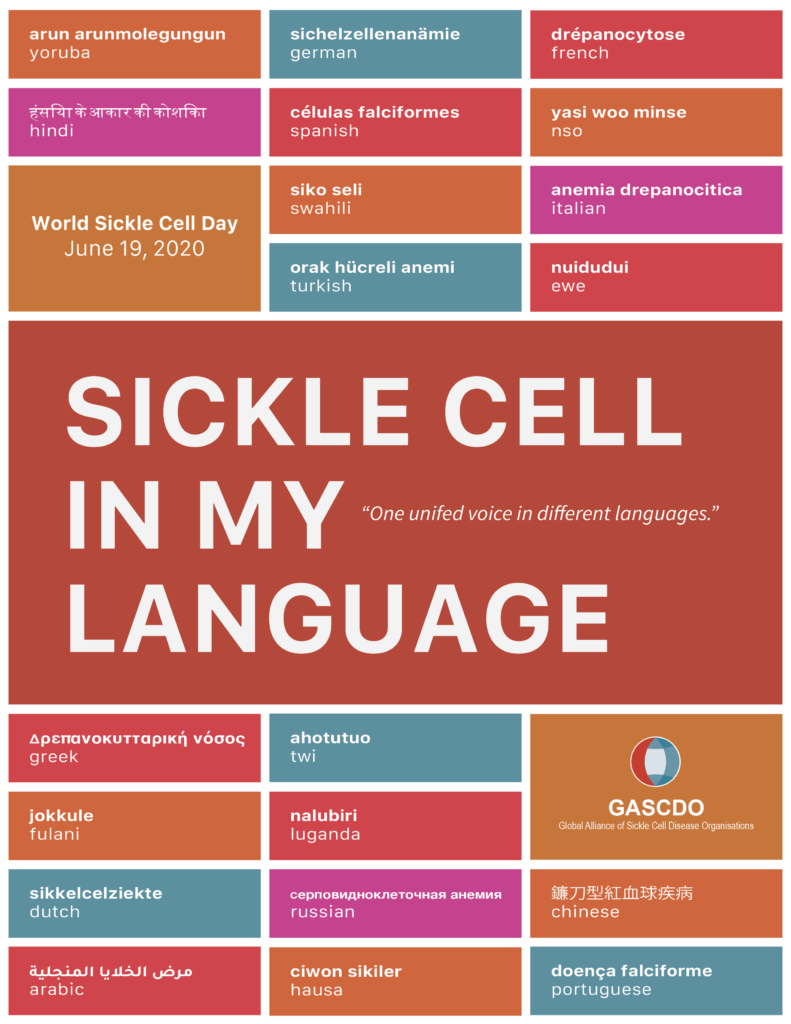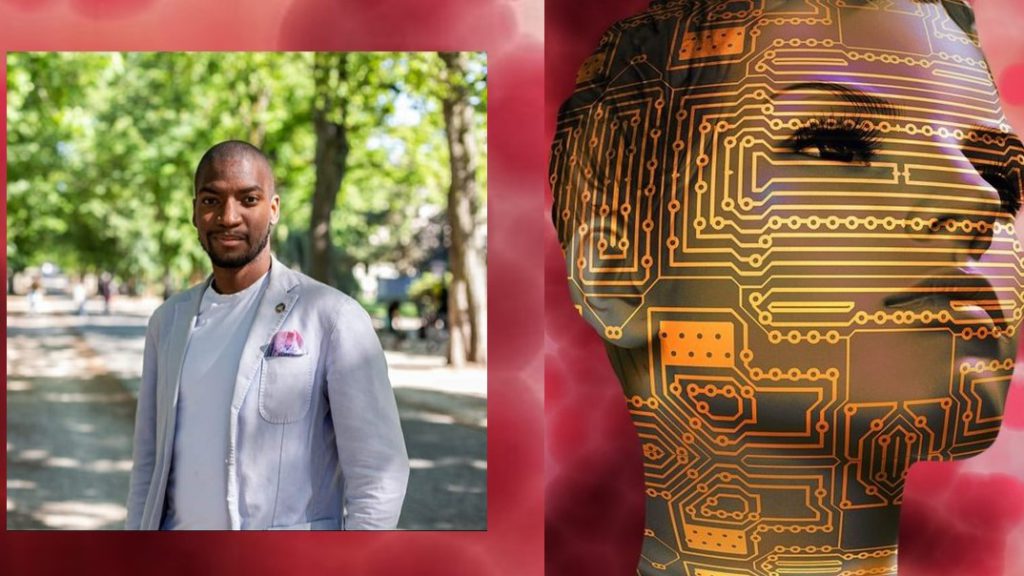Voices coming together to raise awareness

The GASCDO’s Sickle Cell In My Language poster features what ‘sickle cell disease’ (SCD) is called in some of the languages of the world.
It is interesting to note that the translation of SCD in most languages may not truly reflect the true meaning of SCD. While some translations are symptomatic, others may be circumstantial in meaning.
For instance, the Yoruba translation of SCD is- “Arun Arunmolegungun” a disease that hurts the child’s bones- (a symptomatic translation). It is also referred to as “Abiku”- children who come and go” (a circumstantial translation).
GASCDO hopes that this poster will help the global SCD community reflect on translations of SCD in their languages and work towards addressing the stigmas associated with such translations.
Current Advocay Work in Sickle Cell Disease the Caribbean perspective
Participation to the webinar organized by GASCDO. Sickle cell disease advocacy work from across the world : Africa, South/Latin America, Middle East, South Asia, Caribbean, Europe and North America.
Review of a workshop led by David Issom: Patient Expert

David Issom is developing a mobile application of individualized medical coaching “Trevor the Robot” to help people with sickle cell disease to take care of themselves. This project is the subject of his PhD in Global Health prepared at the University of Geneva.
Review of one of the workshops set up by David Issom to test the prototype of his robot and exchange with the patients on the different ways to become more autonomous through information technologies; sessions organized during the events organized in Guadeloupe and Martinique for World Sickle Cell Disease Day 2019.
“I really enjoyed being able to participate in this awareness week. The encounters were very enriching, meeting patients from other backgrounds allowed me to understand other points of view, and it confirmed to me that the patients’ situation was rather similar to everywhere I travelled, especially for self-management problems. But still, care is much better organized than in Switzerland, for example, or in most countries where recognition of the disease is lower. Otherwise, I also noted some problems of organisation and coordination between the associations. One more argument to federate all these associations in order to speak with a strong voice and give the disease the support and credibility it deserves! Finally, working with patients, students and caregivers was extremely rewarding, but also touching! Another argument for more research conducted by and with patients and affected people (e.g. caregivers).
“We are continuing to develop the application taking into account patient feedback and using a more robust and mature technology than the one presented last year”.
